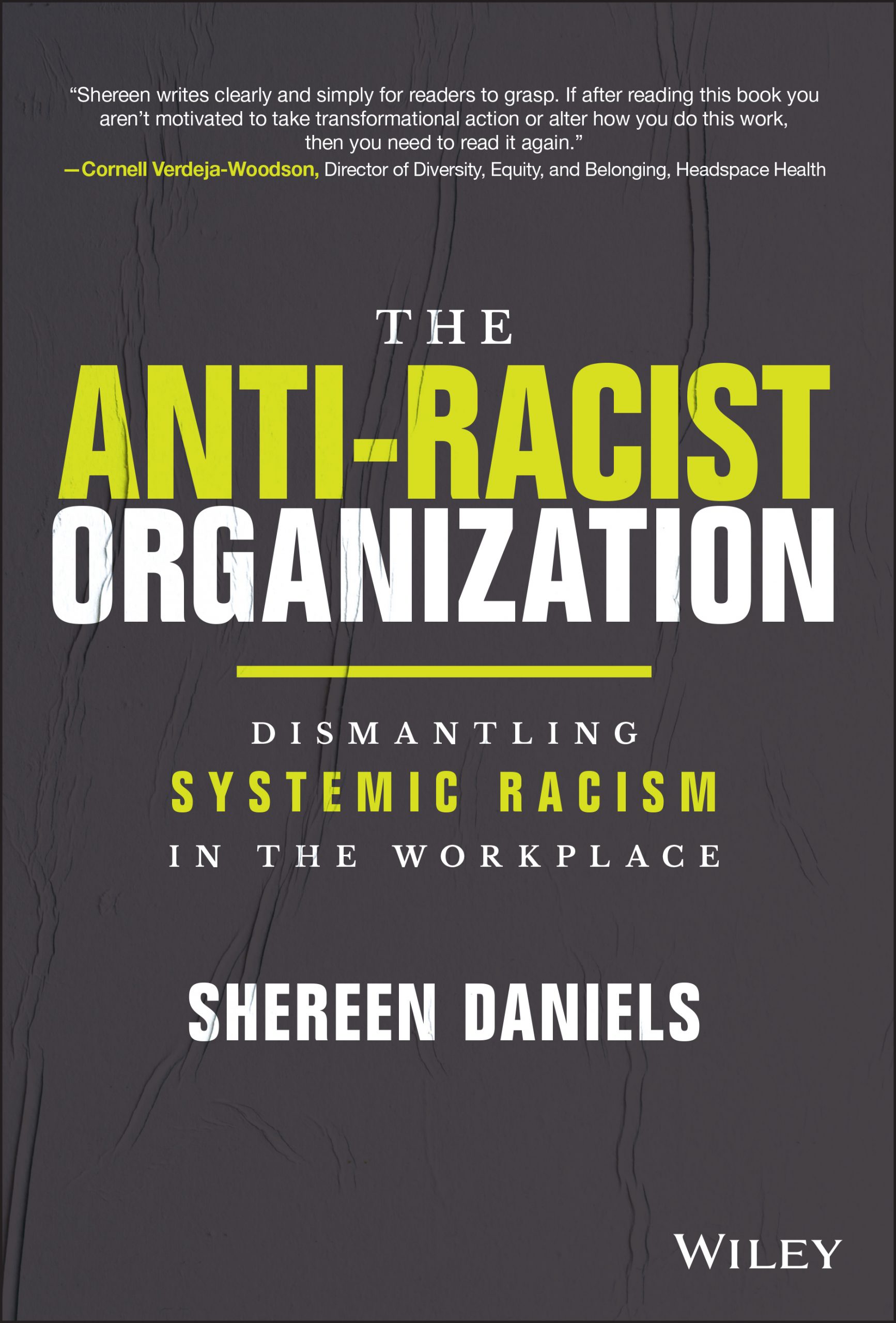I was hugely keen to review this book – I avidly follow Shereen on LinkedIn, and find her content very thought provoking. So I was delighted to grab it from the list. It didn’t disappoint. Powerful, often hard read, it drives home the need to do much more to create equity for the global majority across all our organisations. But, it also made me realise that I wasn’t the best person to review it – I don’t have the life experiences or the perspectives to do it justice. And, in line with the book’s content, it just felt plain wrong. So I asked my colleague, Diana Oyewusi, to step in for me. Here are her words.
The Anti-racist Organization by Shereen Daniels Is jam-packed with information, resources, and tools to assist in achieving her goal of dismantling systemic racism. I can see the lengths she has gone through to first make the reader understand a black person’s work experience, and then to equip the reader with tools to make a change.
As a black woman reading this, the statistics and stories she used served as very clear reminders of not only what I have experienced, but my family as well. My list of racist experiences that have shaped my life that support Shereen’s examples are endless. I only say this to highlight the truth in every single statistic and example Sheeren gives, which was very bittersweet.
On so many pages of Shereen’s book, the ethos my family had given me to survive was echoed. ‘Work twice as hard to get half as far’ and ’ let your standard of work challenge their stereotypes’ are two of the many ways I’ve been conditioned to work. It makes me realise that I was feeding the system by taking these, and many other stances; being complicit by working according to limiting beliefs.
It was sad, but validating, to see one of Sheeren’s colleagues express my sentiments so precisely, and Shereen’s metaphor of ‘Are you tinkering with fish or dredging the Lake’ was brought to life with strong stories that had a profound effect on me. I hope it has the same effect on white readers.
The book made it clear that many white people are unaware of our experiences, because we don’t have safe spaces to share them. Sheeren understands how little people know of our experience, which is why she puts so much effort into giving such an accurate insight into what I would describe as black people’s working normality.
The second half of the book looks into what can be done about that normality – starting with a clear ‘why’ before opening up the how. Her concept that it is not about being an expert in the black experience is powerful, and shapes an approach that is highly practical. Shereen shares a number of key stepping stones that help to define a new approach – enabling us all to constantly ask why and question why our common realities are the way they are.
I believe, if read sincerely and with an open mind ready to accept the book’s truth, it will create an amazing starting point for dismantling systemic racism. But the things Shereen is asking for to achieve the goal of dismantling racism, the tools she gives, come with huge asks. Although the thinking points should motivate these asks, as I was reading and from my lived experiences I wonder if the asks are possible.
Shereen has high expectations of every reader, as she would need to, to achieve what she is trying to create. Although an amazing and inspiring book, if true change is to occur, the actions after reading the book are what matter most.
Chris Preston is a culture expert and one of the founding partners of The Culture Builders









